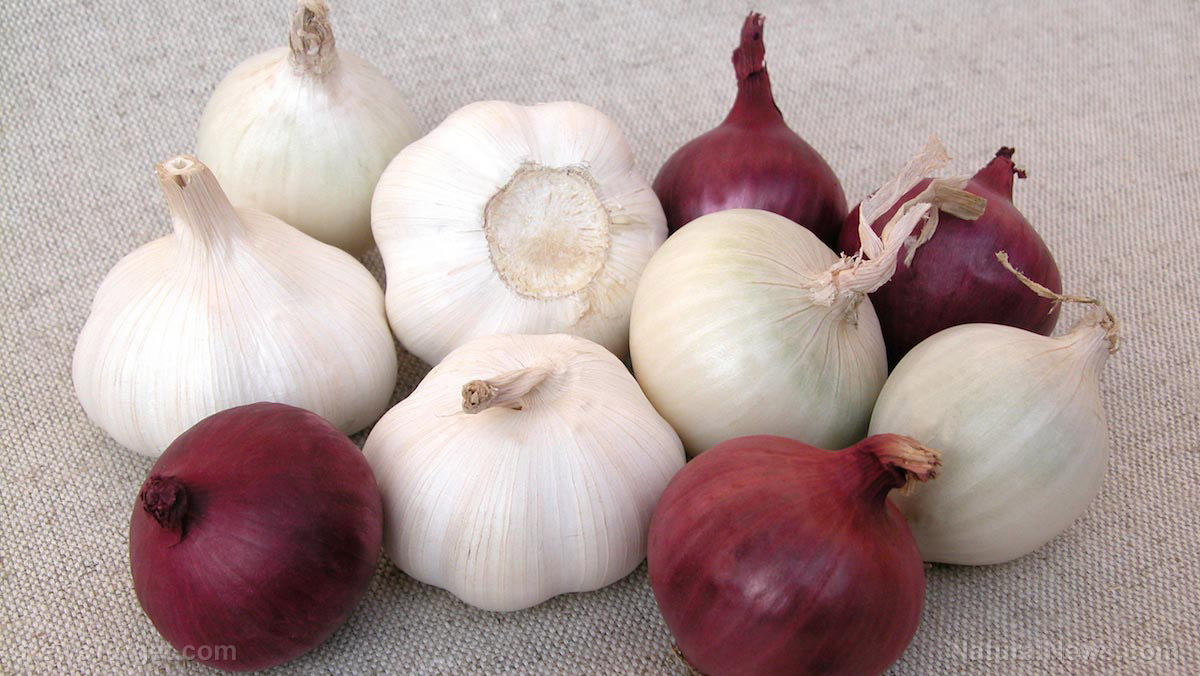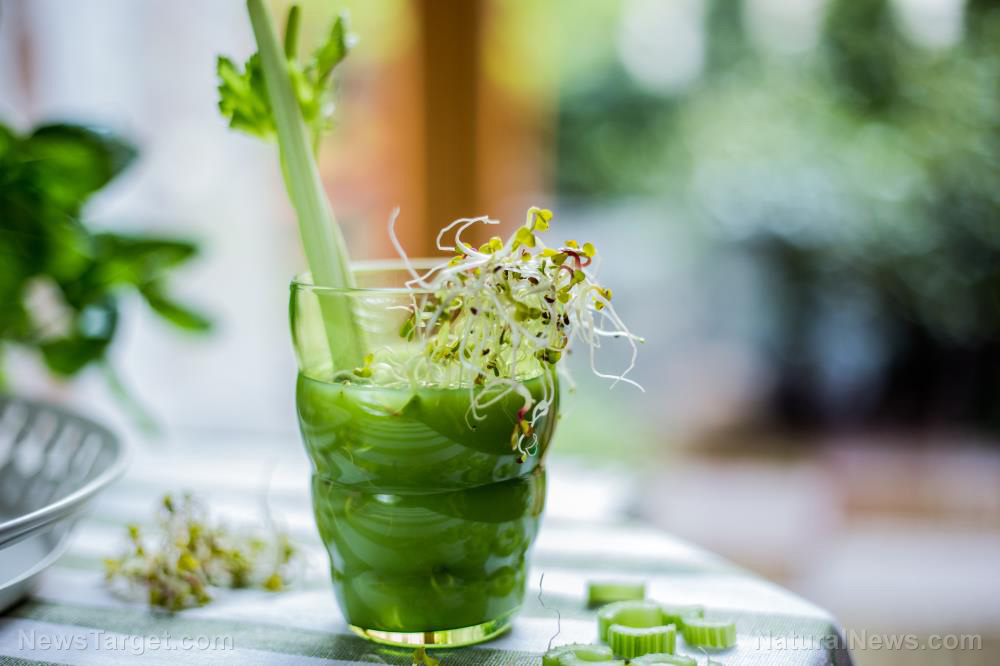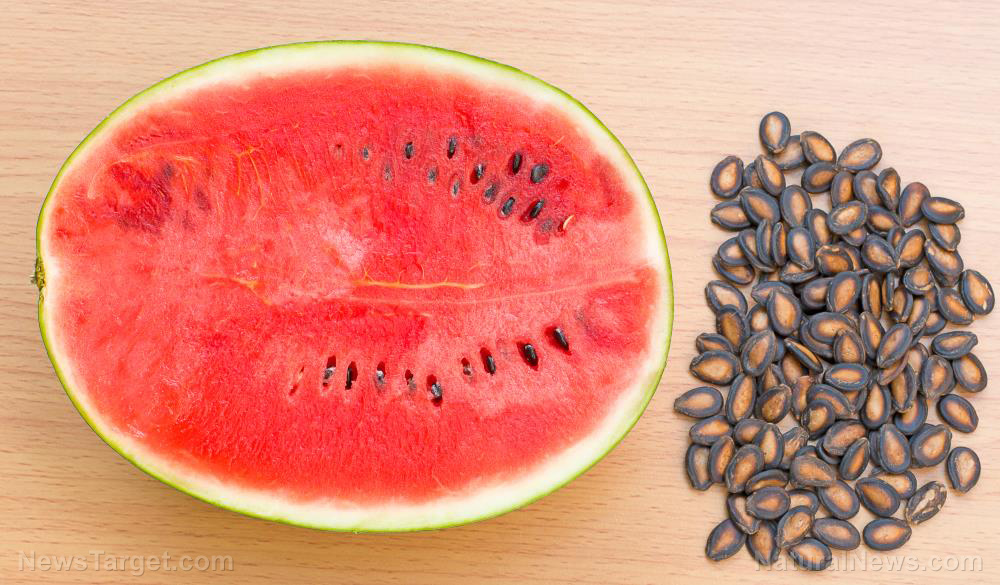The sweet and the sour: Health benefits of honey and apple cider vinegar
07/24/2020 / By Virgilio Marin

Apple cider vinegar starts life as an apple juice. It is then fermented twice with yeast. It is most notable for its strong, sour flavor, which is due to its main ingredient acetic acid. In turn, this substance is said to be responsible for the health benefits of apple cider vinegar.
Meanwhile, honey is a sweet and viscous substance produced by bees and stored in honeycombs. It is a mixture of glucose and fructose, with trace amounts of pollen, micronutrients and antioxidants.
While they are typically consumed separately, a trend lately mixes honey and apple cider vinegar. The sourness of the latter complements honey’s sweetness. Meanwhile, their individual nutrients exhibit powerful benefits to your health.
Benefits of honey and apple cider vinegar
As popular as the trend of mixing may be, studies have so far focused on the two products separately. Still, a deep dive into their health benefits will show why mixing honey and apple cider vinegar is good for the health:
1. Apple cider vinegar can aid in weight loss
Apple cider vinegar is linked to weight loss. A study on obese adults found that those ingesting two tablespoons of apple cider vinegar diluted in a 500 ml drink daily had the most weight loss compared to two control groups. Moreover, they also had a 0.9% reduction in body fat.
In fact, acetic acid, the active ingredient in the vinegar, is said to reduce fat accumulation and help control blood pressure.
Furthermore, apple cider vinegar can also keep you feel fuller longer. This is because it slows down how quickly nutrients from foods are absorbed into the bloodstream. (Related: Garlic, honey and apple cider vinegar: Powerful natural mixture against indigestion, obesity.)
2. Honey and apple cider vinegar can help with allergies and cold symptoms
Honey and apple cider vinegar are both considered natural antimicrobials. Honey, for one, may help soothe seasonal allergies through trace amounts of pollen and plant compounds. Even symptoms of allergic rhinitis and hay fever may be relieved through honey.
Studies also suggest that honey can help relieve coughs in children. One study found that honey may be an effective way to decrease the severity and frequency of a child’s nighttime cough.
On the other hand, apple cider vinegar contains probiotics that are beneficial for the good bacteria in the gut. These bacteria help in digestion and play a role in boosting the immunity. In this manner, using apple cider vinegar may help you fight a cold.
3. Honey and apple cider vinegar can help improve heart health
The chlorogenic acid in vinegar is linked to decreasing bad cholesterol levels, which can then potentially reduce the risk of heart disease.
In addition, apple cider vinegar may reduce inflammation and decrease the likelihood of plaque buildup in the arteries. This can keep heart healthy and protect you from cardiovascular disease.
Honey, on the other hand, is shown to lower high blood pressure in animal studies. High blood pressure, together with bad cholesterol levels, is a major contributor to the development of heart disease. With honey’s polyphenol antioxidants, however, you can reduce the risk of heart disease as these compounds can improve blood flow, as well as prevent blood clots and the oxidation of bad cholesterol.
Given these benefits, incorporating honey and apple cider vinegar in your food or in your medicinal kit may be beneficial for health. And while more research is needed, combining the two might work wonders for the body in ways people are only beginning to discover.
Learn more about the uses of apple cider vinegar and honey at Foodcures.news.
Sources include:
Tagged Under: allergies, anti-obesity, apple cider vinegar, bees, cardiovascular health, children's health, cholesterol, common cold, coughs, disease treatments, fightobesity, foodcures, heart disease, high blood pressure, honey, nutrients, pollen, prevention, relief, weight loss
RECENT NEWS & ARTICLES
GroceryCures.com is a fact-based public education website published by Grocery Cures Features, LLC.
All content copyright © 2018 by Grocery Cures Features, LLC.
Contact Us with Tips or Corrections
All trademarks, registered trademarks and servicemarks mentioned on this site are the property of their respective owners.




















